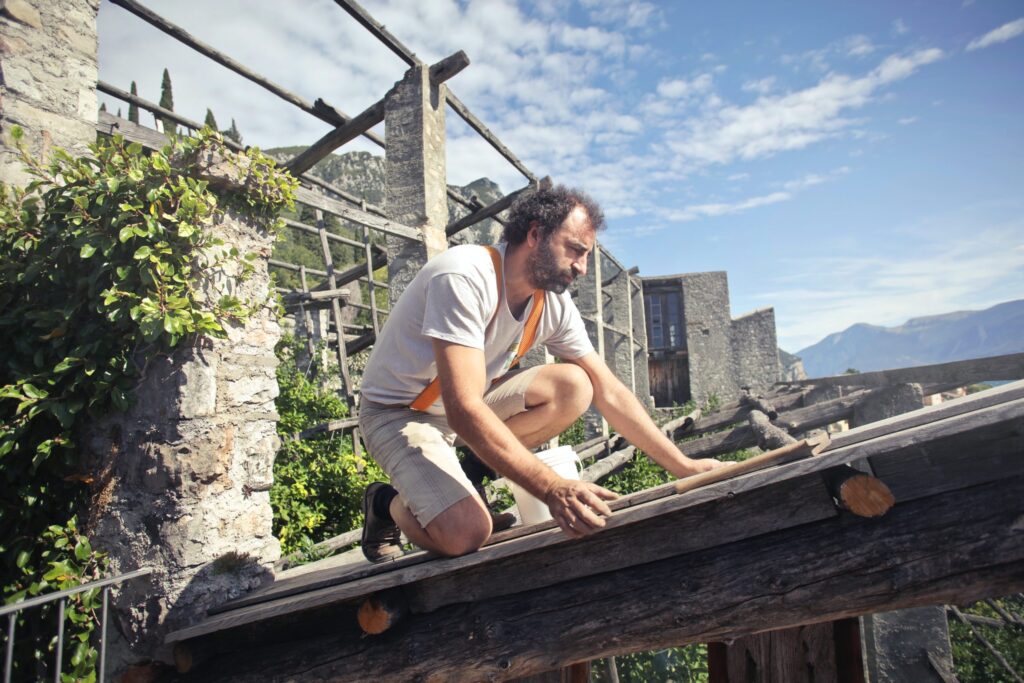According to the Illinois Attorney General, their office receives thousands of complaints every year from homeowners involved in a dispute with a home repair contractor.
As an example, in 2005 storms caused extensive damage to several neighborhoods in Cook County. A roofing contractor soliciting business in the area took nearly $49,000 in deposits from homeowners for roofing and siding projects, many of which were never started. The roofing contractor in question was charged with violations of both the Illinois Consumer Fraud and Deceptive Business Practices Act and the Home Repair and Remodeling Act.
Incidents like these illustrate the importance of contractor licensing laws. Because the roofing contractor in question was licensed in Illinois, there were specific remedies available to the defrauded homeowners through the Attorney General’s office.
In Illinois, licensure of roofing contractors is described in the Illinois Roofing Industry Licensing Act. If you’re wanting to become a licensed roofing contractor, you’ll need to provide a range of documents and information including proof of current public liability and property damage insurance, Worker’s Compensation insurance for all employees, and unemployment insurance. You’ll also have to submit a continuous bond to the Department and pass all related licensing exams (225 ILCS 335).
There are two types of licenses available for roofing contractors: a limited license and an unlimited license.
- A roofing contractor with a limited license can only provide roofing services for residential properties and multifamily housing buildings with eight units or less.
- A roofing contractor with an unlimited roofing license can provide services for all properties, whether residential, commercial, or industrial.
Applications for a limited license must include a $10,000 bond. If you’re seeking an unlimited license, you’ll have to provide a $25,000 bond (225 ILCS 335/3).
It is up to consumers to ensure that the roofing contractor they hire is licensed. Currently, there are 3,660 licensed roofing contractors in Illinois. There are several easy ways for consumers to confirm licensure.
For example, homeowners can call both the Illinois Attorney General’s Office and the Better Business Bureau for information about licensing status and contractor complaint records. It’s also important to ask any roofing contractor for copies of their license and registration if it is not offered, as well as a copy of their proof of insurance. Any reputable roofing contractor should not hesitate to provide the documents you request.
Along with gathering licensing information, there are several red flags to watch for when hiring a roofing contractor. For example, a reputable contractor should have a local business address. Be wary of businesses with post office boxes or out-of-state addresses. It is a good idea to get written estimates from multiple firms and to check each one out before making a decision. A reputable contractor should also offer complete written contracts that detail all costs related to the job, and will never ask a client to pay for the entire job upfront.
If problems with a roofing contractor do arise, the Illinois Attorney General recommends attempting to resolve any disputes directly with the contractor first. If this is not possible or the contractor fails to respond, you can file a complaint with the Office of the Illinois Attorney General, which offers a cooperative mediation program that can help avoid more expensive legal battles. If a lawsuit becomes necessary, it is best to consult an attorney to explore the available options for resolving any disputes in court.
To learn more about what the right representation can do for you, contact me today. I have the experience you need to help put you back on the path to a successful professional career.



